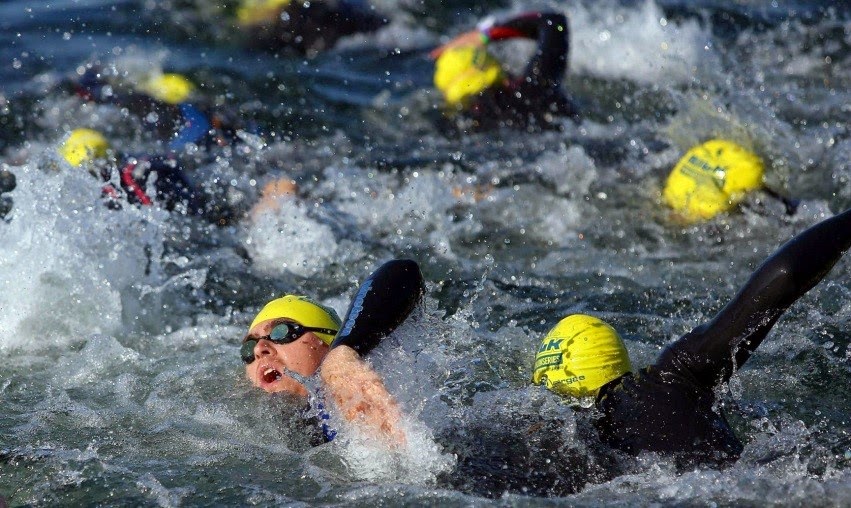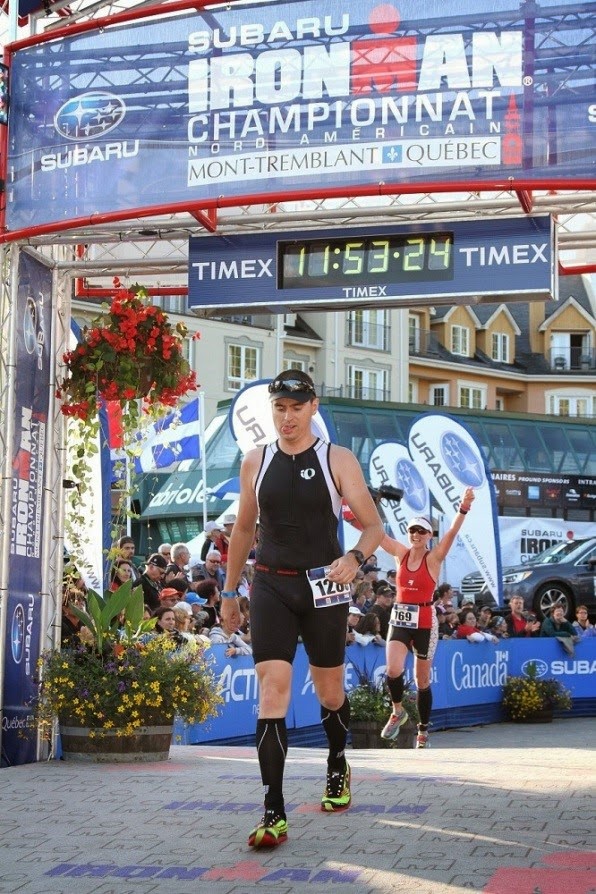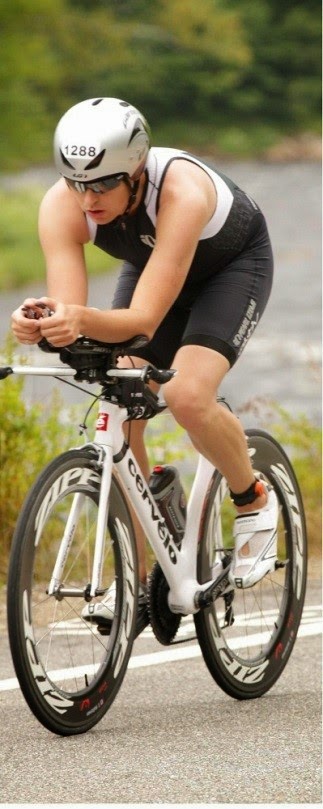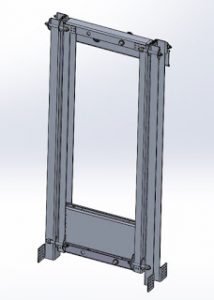This week we are getting to know more about Tyler Holtzman, the highly revered mentor from 2056 OP Robotics. He’s been involved with FRC for more than 10 years and previously mentored 1114 Simbotics before joining 2056 OP Robotics as one of their founding mentors. He has numerous years of FRC experience that helped him build up 2056 to the powerhouse team that they are today. With his help, OP Robotics have won every regional they have competed in since he has joined the team. FIRST has had a large impact on Tyler Holtzman’s life by giving him his first full-time job that he continues to do today. Even as he is heavily involved in the FRC community, he lives a balanced life that allowed him to train and participate in the Ironman Mont Tremblant in August of 2014. Be sure to read to more about his story and advice in the rest of the article and learn how a great mentor works.
[Responses from September 8, 2014; Updated on May 1, 2015]
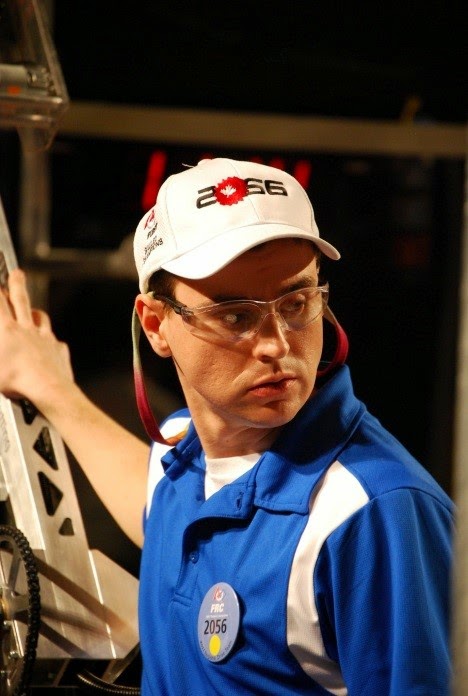
Name: Tyler Holtzman
CD Username: Holtzman
Current Gig/Job: Design Engineer
Alma Mater/Degree: McMaster University, B. Eng Software Engineering
Current Team(s): 2056 OP Robotics
Former Team(s): 1114 Simbotics
Location: St. Catharines, Ontario
Hobbies: Triathlon
What inspired you to do
what you do? Tell us a story.
what you do? Tell us a story.
Growing up, I was always playing with machines. I
liked tractors, Lego, and was always building things and helping my dad in the
garage. I built my first 4 bar when I was 6. I got into rock climbing when I
was 10 and did that for a few years. I got into cycling when I was 15. It
started off as mountain biking, and then road racing. I did that through most
of high school and was fairly successful. I won the Provincial Championship a
couple times, and won some big races in the States. I learned a lot of valuable
life lessons racing that have stuck with me for the rest of my life. If you
want to be truly successful at something, you have to make sacrifices. This is
true in design, and engineering, as it is in life in general. I didn’t have
much of a social life in High school. My schedule went something like go to
school, come home, go ride till it was dark, then homework and bed. The other
thing I learned was that going to races isn’t the fun part. Training isn’t the
fun part. Winning is the Fun part. This kind of competitive spirit must be
tempered with modesty, and grace. I don’t care for boastful attitudes, and
prefer to be let my actions and achievements speak for me. There is no shame in
losing to a better man, provided you gave your best effort.
liked tractors, Lego, and was always building things and helping my dad in the
garage. I built my first 4 bar when I was 6. I got into rock climbing when I
was 10 and did that for a few years. I got into cycling when I was 15. It
started off as mountain biking, and then road racing. I did that through most
of high school and was fairly successful. I won the Provincial Championship a
couple times, and won some big races in the States. I learned a lot of valuable
life lessons racing that have stuck with me for the rest of my life. If you
want to be truly successful at something, you have to make sacrifices. This is
true in design, and engineering, as it is in life in general. I didn’t have
much of a social life in High school. My schedule went something like go to
school, come home, go ride till it was dark, then homework and bed. The other
thing I learned was that going to races isn’t the fun part. Training isn’t the
fun part. Winning is the Fun part. This kind of competitive spirit must be
tempered with modesty, and grace. I don’t care for boastful attitudes, and
prefer to be let my actions and achievements speak for me. There is no shame in
losing to a better man, provided you gave your best effort.
To be great, truly great, you must have the
drive, commitment, passion, a fire in your belly that sets you apart from the
rest. Regardless of what you choose to do in life, give it your all, and you
too will be truly great.
drive, commitment, passion, a fire in your belly that sets you apart from the
rest. Regardless of what you choose to do in life, give it your all, and you
too will be truly great.
In my 2nd last year of high school, our tech teacher
told us we were starting a Robotics Team. I got hooked our first year, but it
wasn’t really until our second season that I began to apply my competitive
spirit to robotics. My focus shifted away from bike racing, and stayed firmly
planted on FIRST for many years to come. After graduating high school, I stayed
active with the team travelling home on weekends, and building offseason
prototypes with 1114.
told us we were starting a Robotics Team. I got hooked our first year, but it
wasn’t really until our second season that I began to apply my competitive
spirit to robotics. My focus shifted away from bike racing, and stayed firmly
planted on FIRST for many years to come. After graduating high school, I stayed
active with the team travelling home on weekends, and building offseason
prototypes with 1114.
In the fall of 2006, I heard that a new team was
starting not far from where I was attending University. I agreed to come by a
few days a week and lend a hand. A few days a week soon became every day of the
week, and 2056 was born. 2007 I pulled double duty with FRC 1114 and 2056, but
2007 would be my last season actively involved with FRC 1114. I led the VEX team
at 1114 until 2009 when I started working full time. I led the design effort and
was field coach at 2056 up until the 2014 season.
starting not far from where I was attending University. I agreed to come by a
few days a week and lend a hand. A few days a week soon became every day of the
week, and 2056 was born. 2007 I pulled double duty with FRC 1114 and 2056, but
2007 would be my last season actively involved with FRC 1114. I led the VEX team
at 1114 until 2009 when I started working full time. I led the design effort and
was field coach at 2056 up until the 2014 season.
What is your day job,
and how’d you get there?
and how’d you get there?
I work for small automation company called Jantz
Canada. We are a systems integrator for Kuka Robotics, and I am responsible for
all robotic applications here. We focus primarily on Palletizing applications
for the food industry.
Canada. We are a systems integrator for Kuka Robotics, and I am responsible for
all robotic applications here. We focus primarily on Palletizing applications
for the food industry.
A customer will come to us with an application
they would like automated. I’m responsible for coming up with a viable
solution, and helping to price out what we think the job will cost. If the
customer chooses to buy the system, then I lead the detailed engineering design
of all of the components in the system. We have in house fabrication here, so I
keep an eye on the fabrication. We set up and test the system before we ship. Make
whatever revisions we need to, and then ship it. Once the system is onsite, I
travel there to oversee the startup, and to train the operators on how to use
it.
they would like automated. I’m responsible for coming up with a viable
solution, and helping to price out what we think the job will cost. If the
customer chooses to buy the system, then I lead the detailed engineering design
of all of the components in the system. We have in house fabrication here, so I
keep an eye on the fabrication. We set up and test the system before we ship. Make
whatever revisions we need to, and then ship it. Once the system is onsite, I
travel there to oversee the startup, and to train the operators on how to use
it.
An example of the kinds of systems we do can be
found here. https://www.youtube.com/watch?v=UFE0KsItbZQ
found here. https://www.youtube.com/watch?v=UFE0KsItbZQ
Thankfully, we’re a lot better at making robotic
systems than we are at making videos.
systems than we are at making videos.
How I got there is an interesting story. In fall
of 2009, one of our students at the time approached Jantz Canada as a potential
laser cutting sponsor. They agreed, and provided laser cutting and bending for
us for the 2010 season. On the Thursday of the 2010 Waterloo Regional, I got a
call from the GM at Jantz asking me how our season was going, and what my
current employment status was. At the time, I was recently graduated from
McMaster, and was planning to start looking for work after The Championship. They
hired me right after Champs in 2010, and I’ve been there ever since.
of 2009, one of our students at the time approached Jantz Canada as a potential
laser cutting sponsor. They agreed, and provided laser cutting and bending for
us for the 2010 season. On the Thursday of the 2010 Waterloo Regional, I got a
call from the GM at Jantz asking me how our season was going, and what my
current employment status was. At the time, I was recently graduated from
McMaster, and was planning to start looking for work after The Championship. They
hired me right after Champs in 2010, and I’ve been there ever since.
What is your favorite
story to tell about robotics?
story to tell about robotics?
2012 was an interesting season for 2056 for a
number of reasons. Our first event was marred with controversy. Our second
event was relatively uninteresting, but at our third event, we were forced to
cross a bridge I would have rather not crossed. We had to play against, and
ultimately defeat 1114 at a regional.
number of reasons. Our first event was marred with controversy. Our second
event was relatively uninteresting, but at our third event, we were forced to
cross a bridge I would have rather not crossed. We had to play against, and
ultimately defeat 1114 at a regional.
The Archimedes finals of 2012 were the most
satisfying victory of my FIRST Career. After being forced to play against 1114
in regional competition, we were able to select them with the 2nd
overall pick.
satisfying victory of my FIRST Career. After being forced to play against 1114
in regional competition, we were able to select them with the 2nd
overall pick.
Following the release of the Divisions, we had
stepped up our practicing with 1114. Both 1114, and 2056 underestimated how
important Triple Balancing was that season, and both built long robots. This
made tripling together almost impossible, unless we had a 20” robot in between
us. Knowing this, we had built a short practice drive base the size of 4334’s
robot to practice Tripling together prior to the championship. When we were
able to select them in the 2nd round, we knew we had put together
the special kind of alliance you need to go to Einstien.
stepped up our practicing with 1114. Both 1114, and 2056 underestimated how
important Triple Balancing was that season, and both built long robots. This
made tripling together almost impossible, unless we had a 20” robot in between
us. Knowing this, we had built a short practice drive base the size of 4334’s
robot to practice Tripling together prior to the championship. When we were
able to select them in the 2nd round, we knew we had put together
the special kind of alliance you need to go to Einstien.
We advanced to the finals against Wave and HOT. Wave
was exceptionally good that year, and HOT was the best triple balancing robot
that season. They were a fantastic alliance, but hadn’t been able to nail the
Triple Balance that had been HOT’s signature move throughout that season.
was exceptionally good that year, and HOT was the best triple balancing robot
that season. They were a fantastic alliance, but hadn’t been able to nail the
Triple Balance that had been HOT’s signature move throughout that season.
In the first match, our alliance nailed our
triple, but Wave really lit it up, and we lost by 3. The 2nd match,
we kept it closer on balls, and hit our Triple to win the match. The third
match was back and forth. Blue leading by 3 after auton. With 30s to go, we were
tied, and 1114 lost Comms. Hot hit two more balls, to take the lead, and we hit
two more to tie it up with 20s to go, as all 5 live robots go to balance. Just
as we peel off to balance, our Human player hits a 2 to take the lead.
triple, but Wave really lit it up, and we lost by 3. The 2nd match,
we kept it closer on balls, and hit our Triple to win the match. The third
match was back and forth. Blue leading by 3 after auton. With 30s to go, we were
tied, and 1114 lost Comms. Hot hit two more balls, to take the lead, and we hit
two more to tie it up with 20s to go, as all 5 live robots go to balance. Just
as we peel off to balance, our Human player hits a 2 to take the lead.
After losing the 2nd match, The HOT
Wave alliance tried for a Triple that had eluded them throughout the Elims thus
far. After balancing for a couple seconds, wave tipped off the end, they
quickly reorganized, and attempted again looking like they had it for good. We
double balanced with just seconds to spare, and I looked over at the opposing
bridge with three robots balanced but just as the buzzer sounded, they tumbled
off the bridge, and we had the win.
Wave alliance tried for a Triple that had eluded them throughout the Elims thus
far. After balancing for a couple seconds, wave tipped off the end, they
quickly reorganized, and attempted again looking like they had it for good. We
double balanced with just seconds to spare, and I looked over at the opposing
bridge with three robots balanced but just as the buzzer sounded, they tumbled
off the bridge, and we had the win.
And that’s where I end that story. Unfortunately
we went to Einstein, and some stuff happened, but that’s a story for another
day.
we went to Einstein, and some stuff happened, but that’s a story for another
day.
Why do you compete in
FIRST?
FIRST?
I’m a firm believer that in FIRST, you get out
what you put in. I’ve often thought that I focus too much on our performance on
the field. That focus has provided me with the skill set required to be an
effective engineer and I’ve never had to look for a job a day in my life. I try
to instill that passion for success in our students, and couldn’t be more proud
of what they’ve accomplished.
what you put in. I’ve often thought that I focus too much on our performance on
the field. That focus has provided me with the skill set required to be an
effective engineer and I’ve never had to look for a job a day in my life. I try
to instill that passion for success in our students, and couldn’t be more proud
of what they’ve accomplished.
I continue to compete because I enjoy the
competitive aspects of it, and the comradery that goes along with it. I have
the utmost respect for the other Powerhouse teams. I enjoy going around the
pits, chatting with other mentors and hearing their stories about how they come
to their solutions.
competitive aspects of it, and the comradery that goes along with it. I have
the utmost respect for the other Powerhouse teams. I enjoy going around the
pits, chatting with other mentors and hearing their stories about how they come
to their solutions.
FIRST has been around long enough that there are
quite a few of us “Lifers” around now; Guys who’ve been in it for 10-15 years,
and continue to come back year after year. I’ve come to call many of these my
friends, and enjoy competing with and against them.
quite a few of us “Lifers” around now; Guys who’ve been in it for 10-15 years,
and continue to come back year after year. I’ve come to call many of these my
friends, and enjoy competing with and against them.
I don’t really get a lot of enjoyment out of
winning regionals anymore. People ask me what it’s like to carry the streak on
your back, but to be honest, I don’t even think about it anymore. After 6 when
we broke the record, it was a big deal, and we celebrated and got hats made
with the 6 on it. Now I’ve got a stack of hats at home and only one head.
winning regionals anymore. People ask me what it’s like to carry the streak on
your back, but to be honest, I don’t even think about it anymore. After 6 when
we broke the record, it was a big deal, and we celebrated and got hats made
with the 6 on it. Now I’ve got a stack of hats at home and only one head.
IRI is my favorite tournament, but the
Championship has become my “White Whale”.
Championship has become my “White Whale”.
What’s your favorite
robot that you didn’t help build?
robot that you didn’t help build?
2008 Team 1114 Simbot SS
This was the first year I wasn’t actively
involved in 1114. I first saw the machine in action right before ship that year
and was completely blown away by it. I knew immediately that they had a winner,
and the rest is history.
involved in 1114. I first saw the machine in action right before ship that year
and was completely blown away by it. I knew immediately that they had a winner,
and the rest is history.
What apps/software/tools
can’t you live without? (Work/Robotics/Home)
can’t you live without? (Work/Robotics/Home)
Solidworks, Dropbox
What’s your workspace
setup like? (Work/Robotics/Home)
setup like? (Work/Robotics/Home)
My home and work desks are fairly similar. I
spend most of my day at my work desk. It’s all about efficiency for me. I use
dropbox to sync files at home, work, and the school. I custom build all the CAD
work stations at our office. They’re purpose built for Solidworks, and run it
fairly well. I have 3 24” Monitors at work, and use a space mouse for CAD work.
spend most of my day at my work desk. It’s all about efficiency for me. I use
dropbox to sync files at home, work, and the school. I custom build all the CAD
work stations at our office. They’re purpose built for Solidworks, and run it
fairly well. I have 3 24” Monitors at work, and use a space mouse for CAD work.
What do you listen to
while you work?
while you work?
I prefer to work in silence.
What’s your schedule
like during build season?
like during build season?
It’s varied a lot over the years.
2007-2012 seasons, it went something like.
30-50 hrs a week
2013 was a little more
2014 was vastly less.
We do a lot of fabrication at the school, so I
try to be there as much as possible while we have access. We are limited by the
school custodians as to when we can be in the school. My dad is a retired
machinist, and has a machine shop in his garage. I often help him with
machining on weekends, or after official team hours. I’ve got CAD workstations
at home, work, and at the school that all have dropbox to sync the models
across. I do whatever I can to make it as easy as possible to be productive. I
find it that too often, people put up barriers and make excuses why they can’t
do something.
try to be there as much as possible while we have access. We are limited by the
school custodians as to when we can be in the school. My dad is a retired
machinist, and has a machine shop in his garage. I often help him with
machining on weekends, or after official team hours. I’ve got CAD workstations
at home, work, and at the school that all have dropbox to sync the models
across. I do whatever I can to make it as easy as possible to be productive. I
find it that too often, people put up barriers and make excuses why they can’t
do something.
What everyday thing are
you better at than anyone else?
you better at than anyone else?
I don’t know that I’m better than everyone else
at one thing. I have a very good long term selective memory. I subconsciously
file memories into two categories, things I need to remember, and things I
don’t.
at one thing. I have a very good long term selective memory. I subconsciously
file memories into two categories, things I need to remember, and things I
don’t.
What’s the best advice
you’ve ever received?
you’ve ever received?
Take care of the little things, and the big things take care
of themselves.
of themselves.
What is your favorite
guilty pleasure?
guilty pleasure?
Cheesecake
Fill in the blank. I’d
love to see Travis Covington from 254 and Michael Corsetto of 1678 answer these same questions.
love to see Travis Covington from 254 and Michael Corsetto of 1678 answer these same questions.
Anything else you want
people to know about you?
people to know about you?
I mentioned earlier that I led the design effort until the 2014
season.
season.
My time with 2056
has had many successes, except for one. The 2012 season came within what felt
like inches of a World Championship. Having that taken away from us the way it
was a tough pill to swallow. The single largest effect had on me was adding fuel
to the fire within me, that’s been on the verge of burning out of control for
many years. I took on 2013 with an attitude and drive that was unsustainable,
and my health suffered as a consequence of that. Our 2013 machine was very
good, and I’m extremely proud of it, but the 2013 season really took its toll
on me.
has had many successes, except for one. The 2012 season came within what felt
like inches of a World Championship. Having that taken away from us the way it
was a tough pill to swallow. The single largest effect had on me was adding fuel
to the fire within me, that’s been on the verge of burning out of control for
many years. I took on 2013 with an attitude and drive that was unsustainable,
and my health suffered as a consequence of that. Our 2013 machine was very
good, and I’m extremely proud of it, but the 2013 season really took its toll
on me.
After the 2013
season, I knew that I needed a break from FRC. I had always been interested in
Triathlon, and my background in cycling made at least one of the disciplines
seem possible, so I decided to register for Ironman Mont Tremblant in August of
2014. I’ve never been one to start small, and I had already competed in a
couple of shorter Triathlons in 2012 so this seemed reasonable. Knowing this
would consume a good chunk of my time, I asked my most trusted alumni Trevor
Kearse (strategy lead 2007-2013) to take over the design effort. He along with
several other key alumni are largely responsible for 2056’s on field success in
2014. Zac Young (Operator, Human Player 2007-2010) stepped in as field coach,
and I have to admit, I think he was a better coach than I ever was. My
involvement was greatly reduced, and I was able to put in the time required to
complete the race this past summer. I have to thank these guys, and everyone
who contributed to our team’s success in 2014.
season, I knew that I needed a break from FRC. I had always been interested in
Triathlon, and my background in cycling made at least one of the disciplines
seem possible, so I decided to register for Ironman Mont Tremblant in August of
2014. I’ve never been one to start small, and I had already competed in a
couple of shorter Triathlons in 2012 so this seemed reasonable. Knowing this
would consume a good chunk of my time, I asked my most trusted alumni Trevor
Kearse (strategy lead 2007-2013) to take over the design effort. He along with
several other key alumni are largely responsible for 2056’s on field success in
2014. Zac Young (Operator, Human Player 2007-2010) stepped in as field coach,
and I have to admit, I think he was a better coach than I ever was. My
involvement was greatly reduced, and I was able to put in the time required to
complete the race this past summer. I have to thank these guys, and everyone
who contributed to our team’s success in 2014.
For 2015, I’ll be
increasing my time commitment over 2014, but not to the insane 2013
levels. Balance is important in life.
Some of us just choose to balance the scales a little more offcenter.
increasing my time commitment over 2014, but not to the insane 2013
levels. Balance is important in life.
Some of us just choose to balance the scales a little more offcenter.
“You don’t have to win every match, just the last
one you play.” -Unknown


